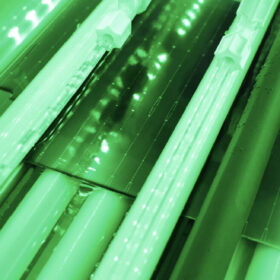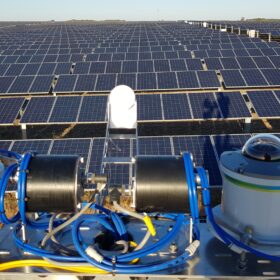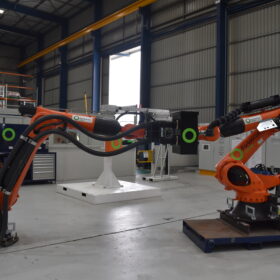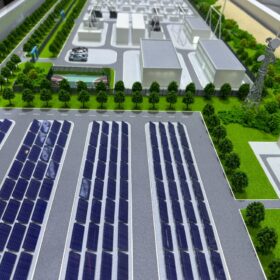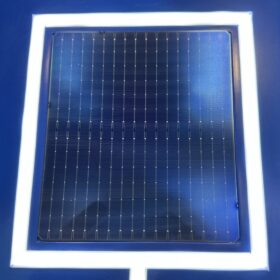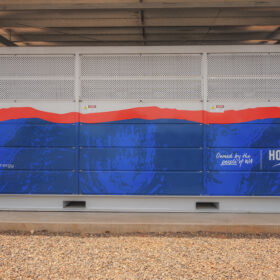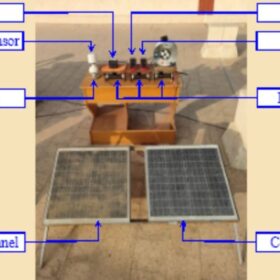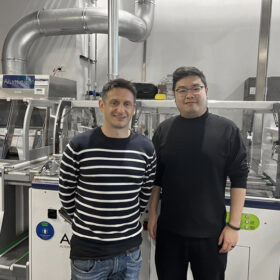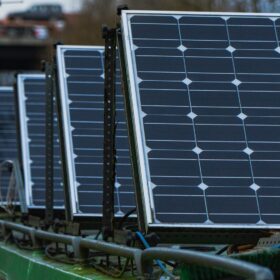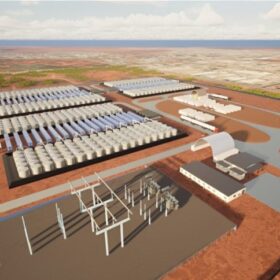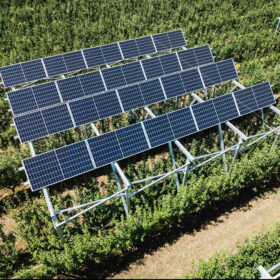JXTC looks to serve up increased cell efficiency
The solar industry has dragged its heels on the issue of silver-dependence for cell metallisation, but China’s Jiangsu Xianghuan Technology (JXTC) is moving into commercial production with a copper plating process that overcomes many of the challenges that have limited interest from cell manufacturers.
Proa wins Projects prize at pv magazine Awards 2024
Forecasting efforts which brought Northern Territory projects back online impressed jurors in the highly competitive pv magazine Awards Projects category.
Fortescue targets 6 MW fast charger with ARENA funding
Mining and energy giant Fortescue has secured a $10 million federal government grant to develop and build a 6 MW fast charger capable of charging battery electric heavy mining equipment.
LCOE not correct optimisation parameter of PV plants, say researchers
New research shows the importance of considering power plant dispatchability in PV project planning. An international team of scientists claim assessing a project’s levelised cost of energy could be misleading, especially with variable and sometimes negative electricity prices.
All solar cell efficiencies at a glance – updated
The research group led by Professor Martin Green has published Version 65 of the solar cell efficiency tables. There are 17 new results reported in the new version.
Horizon powers up vanadium battery tech trial in Kununurra
Western Australia’s state-owned regional energy provider Horizon Power has officially launched the trial of a vanadium flow battery in the state’s north as it investigates how to integrate long-duration energy storage into its network, microgrids, and other off-grid power systems.
Anti-soiling coating increases PV panel current in arid regions by 64.7%
Scientists in Egypt have created an anti-soiling coating for solar panels by mixing ethanol, deionized water, ammonium hydroxide and tetraethyl orthosilicate. They tested a coated panel outdoors for ten months and found that the panel showed a 64.7% higher current compared to reference modules without coating.
Solar cells built on dots and dashes of silver
A team from the University of New South Wales School of Photovoltaic and Renewable Energy Engineering has reinvented the design of screen-printed contacts to reduce costs and silver consumption, without sacrificing the efficiency of tunnel oxide passivated contact solar cells.
Research shows tilt angles over 30 degrees delay solar module thermal failures
A Chinese-Italian research team has analysed the influence of different tilt angles on the thermal failure of the photovoltaic facades or roofs in fire conditions, finding that when the tilt angle exceeds 30 degrees, the time to failure increased significantly.
Study showcases potential of solar farms to complement agricultural practices
A study on the potential benefits of co-locating solar energy generation and sheep grazing shows those that graze in the shade of solar panels may produce better quality wool than those on traditional agricultural properties.
